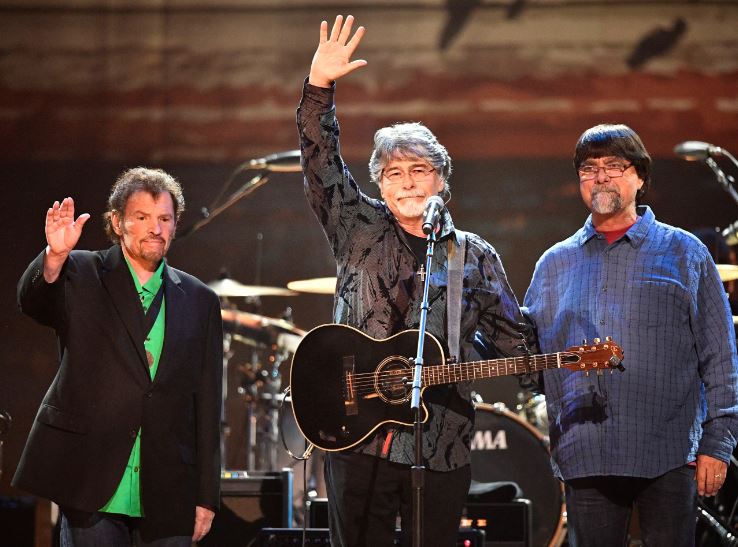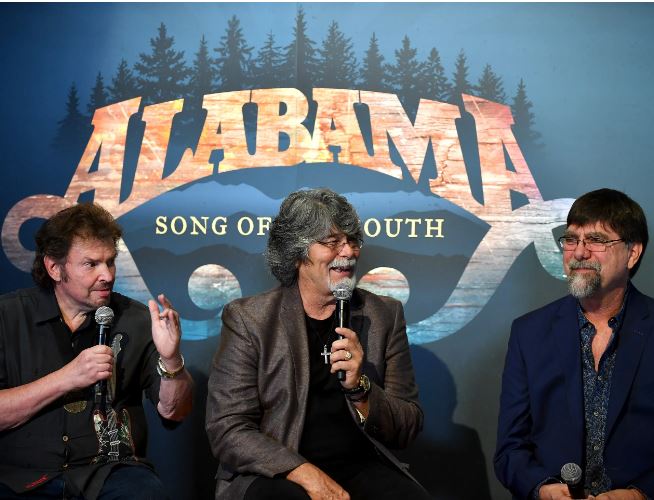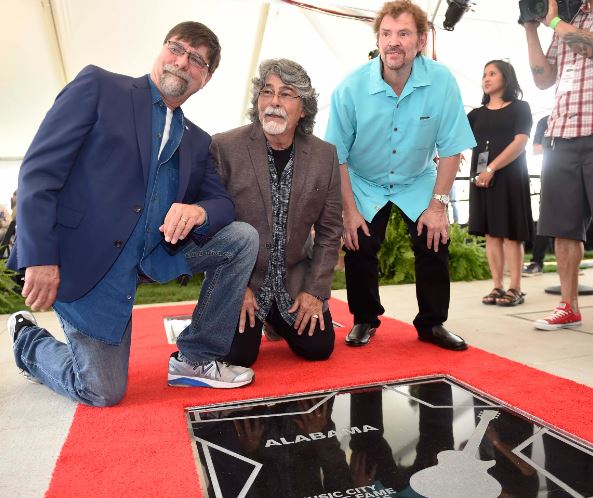Randy Owen, a singer from Alabama, thought he would die.
Owen’s first thought when his doctor told him he had prostate cancer was, “How long do I have?”
When his bandmate, guitarist/fiddle player Jeff Cook, discovered he had the same form of the disease, he had a similar conversation with his doctor. Teddy Gentry, the group’s bass player, had a cancer screener indicate he, too, had it and was forced to wait a month for test results to confirm he was healthy.
“It was a very eerie feeling,” Gentry remarked. “However, it could happen to any of us at any time. You have no control over it. It’s terrifying.”

Alabama will receive the Tony Martell Lifetime Entertainment Achievement Award at the T.J. Martell Foundation’s 11th annual Nashville Honors Gala on Monday. Gentry believes the recognition by the music industry’s leading foundation that funds cancer research will be more meaningful because the disease has touched every member of the Country Music Hall of Fame group. Owen, Gentry, and Cook, who is suffering from Parkinson’s disease, will all be in attendance.
“When I think of Alabama, I think of America because they have touched so many people in this country through their music and their wonderful beliefs and helping people,” said Laura Heatherly, CEO of the T.J. Martell Foundation. “Through the foundation, we love to honor and recognize people who have been a wonderful part of our community. “I believe Alabama has impacted communities across the country.”
The group, which celebrated its 50th anniversary in 2019, staged a farewell tour in 2003 before taking a nearly decade break before Brad Paisley reunited them in 2011 for his No. 1 hit “Old Alabama.” Members expressed surprise that anyone cared about their music at the time. When it became clear that Alabama was still in demand, the multiplatinum-selling band known for 43 No. 1 hits ranging from “Mountain Music” to “Cheap Seats” reformed in 2013 and began making plans.

Owen and Cook were diagnosed with cancer during their downtime. Cook had faith in his medical team, and when they told him he would be fine, he believed them. His fight would have to wait.
Owen’s fight against the disease was more intense. When he asked his doctor how much time he had left, he was threatened with dismissal as a patient.
“He told me, ‘I refuse to work with you as long as you have that attitude,'” Owen recalled. “‘What do you mean?’ I asked.” ‘I’m the ship’s captain now, and we’re going to whip this,’ he said.
The singer’s doctor advised him to seek treatment in Mexico, where a high-intensity focused ultrasound procedure is a standard cancer treatment. In the United States, HIFU was not available. Owen, his wife, Kelly, and his doctor flew to Mexico, where the singer received successful treatment. Owen is still cancer-free after nine years.

“I was terrified,” he said of receiving the life-saving procedure in Mexico. “But I felt like that was the right thing for me. I don’t want to start telling men what to do, but men are terrible about not receiving their paychecks. Prostate cancer is something that many people avoid discussing. There are options available, and the most important thing is to get the PSA test regularly and not be ashamed to discuss it. We’re all just people who get sick.”
Owen helped raise more than $800 million for cancer research at St. Jude Children’s Research Hospital in Memphis as the founder of Country Cares for St. Jude Kids. In recognition of his 30-year commitment to charity, the singer and his family were recently honored with the dedication of a patient family room at the hospital.
Being diagnosed with the disease he’d spent half his life fighting was an unexpected twist of fate for the singer but one he now sees as a blessing.

“I can look at those sweet children at St. Jude and their families and say, ‘I’m with you. I survived cancer. “I know what it’s like to be told you have cancer,” he explained.
While Owen’s health has improved, Cook’s is in jeopardy.
In 2017, the multi-instrumentalist revealed that he had been diagnosed with Parkinson’s disease four years prior and would no longer be able to tour with Alabama regularly. He left the group’s tour and received a stem cell treatment, improving his guitar dexterity. Cook stated that he received a second treatment and intended to receive a third. With more control over his hands, he could perform more concerts with Alabama in 2018 than the band had previously thought possible. Cook’s speech is occasionally interrupted, but he says he is fine other than tired.

His bandmates ensure that his equipment is set up at each concert if he decides to play. Meanwhile, he’s having fun playing guitar in the recording studio. Cook co-wrote the song “No Bad Days” for the band’s “Southern Drawl” album, which now has a new meaning.